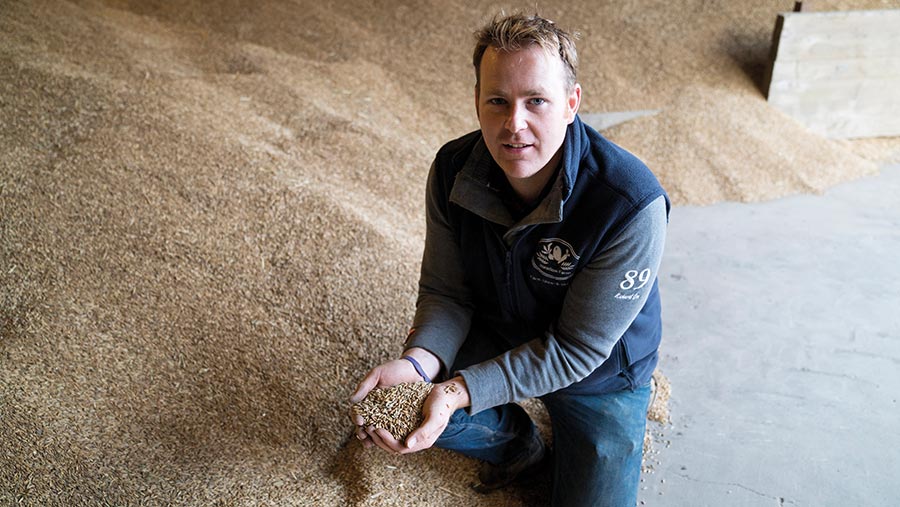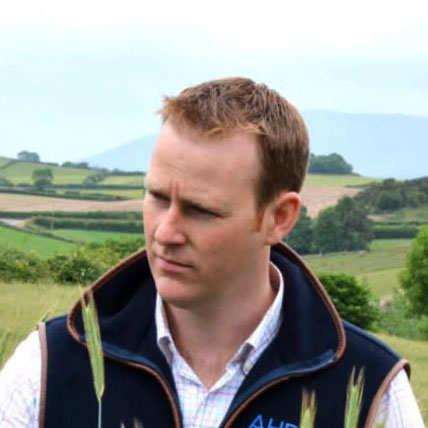Farmer Focus: Next to no crop drying needed this year
 © Steffan Hill
© Steffan Hill What a harvest! Tomorrow we hope to cut four small fields of spring wheat and that will be harvest complete. It looks a nice sample of grain, but the heads are short and I’m not expecting any brilliant yield.
In the 15 seasons that I’ve been managing the crops I’ve never taken grain from the field and tipped it straight into the shed.
None of the wheat or barley has needed drying. Oats were given a quick run through and the spring wheat will probably need a quick run, as I want it cut before rain forecast at the weekend.
Given the high costs this season, it’s such a blessing to have reduced that cost of drying.
See also: How to keep tubers disease-free in potato stores
Yields on the wheat are definitely down slightly as the grain fill potential has suffered with the heat. Yields for all but two fields have averaged 10t/ha, while the two poor fields averaged 6.2t/ha.
One was a lesson learned on cover crops, as the previous crop of potatoes, which had black oats in the cover mix, came through and choked the wheat badly, even with two applications of chemical to kill them.
Our drilling trial plots have been harvested and data collected from the fourth crop, with yields of 8.99-11.91t/ha.
Coming out on top this season is the Simtec drill on soil cultivated to 3in. However, the overall winner from the four years is the Horsch drill into cultivated soil.
My take on the trial is that in our conditions, you need some form of soil movement, either a cultivation pass or a leading tine on the drill. Behind that, good seed placement and consolidation of the soil around the seed is vital, especially in less-cultivated circumstances.
This year straw has been extremely difficult to shift, yet a constant stream of lorries heads up from the south laden with straw and, potentially, blackgrass.
Why can farmers not support each other locally? We chopped the majority of the wheat and oat straw and baled some of the fields which are going to be reseeded.
Going forward, other than a bit of barley straw for regular customers, all straw will be chopped as I’m sick of chasing farmers to load trailers when it suits them – normally on a wet day, marking fields.
I’ve spent years improving soil structure, and to me the benefits of the straw in organic matter, aeration and nutrition will outweigh baling it off.
It’s been a bittersweet harvest as this may be my last harvest as I know it, with family succession issues and my parents’ divorce all tangled up in it.
It remains to be seen if I’ll be planting any crops for next season or not, so check back in my next article to see if any crops go in the ground…


